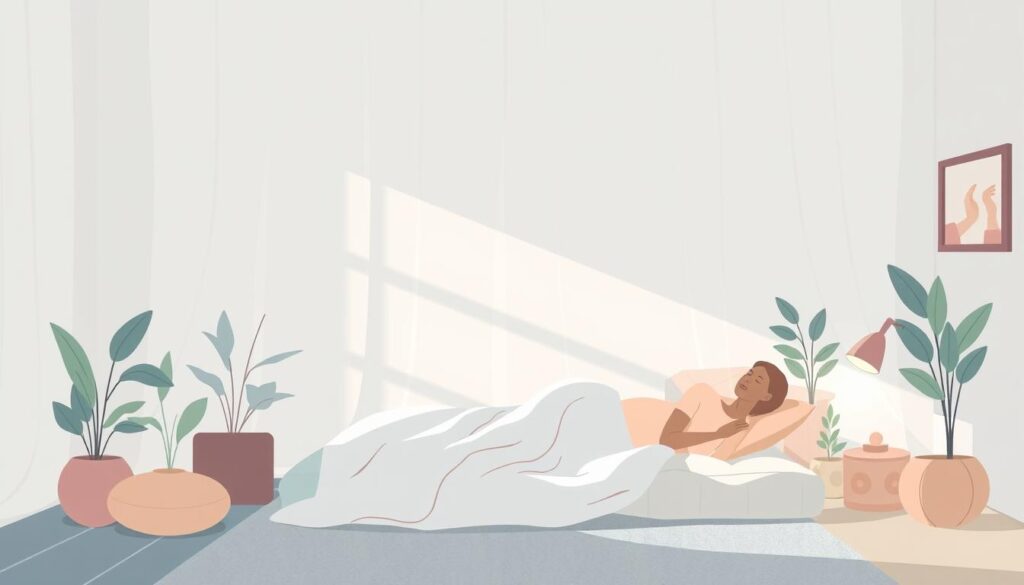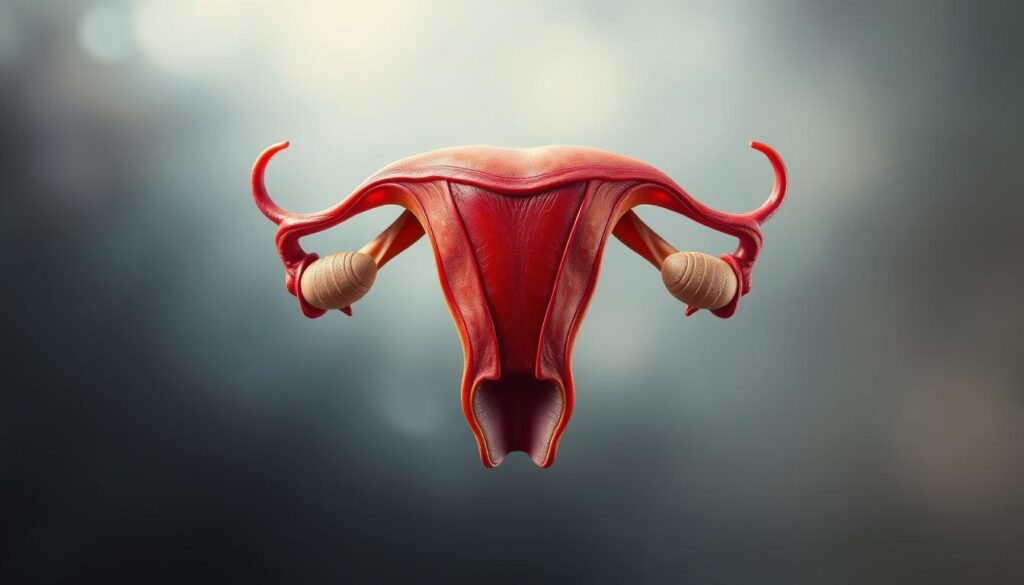Talking about masturbation isn’t easy for everyone. Yet, it’s a big part of our personal lives. Have you ever wondered about its health benefits? Or questioned the myths you’ve heard? You’re not the only one. In this confusing world, it’s vital to figure out your own views on this natural act. Delving into its advantages and drawbacks reveals much about sexual health and personal happiness.
Exploring this topic needs an open mind. Surprising research links frequent ejaculation with lower prostate cancer risk. Yet, too much of it can be bad. This journey offers knowledge to guide you. Together, we’ll explore the many facets of masturbation.
Key Takeaways
- Masturbation can have both physical and mental health benefits.
- The relationship between ejaculation frequency and prostate cancer risk is significant.
- Many myths exist about masturbation that can mislead understanding.
- Excessive masturbation can potentially lead to negative side effects in some individuals.
- Understanding your own body through self-exploration is an important aspect of sexual health.
Understanding Masturbation
Masturbation has always sparked curiosity and talks across many ages. It’s about understanding what masturbation is and clearing up common wrong beliefs. Knowing the facts can help ease worries tied to it.
Definition of Masturbation
Masturbation means touching your own private parts for sexual fun. It’s a normal behavior seen in all genders and sexualities. Research shows that around 84% of men and 79% of women have masturbated at some time, showing it’s widely accepted.
Common Myths Surrounding Masturbation
There are still many myths about masturbation. Some think it causes infertility or harms sexual wellbeing. But evidence shows that masturbating, especially for men, might lower prostate cancer risk. This fact shows the myths aren’t true.
Talking and learning about these myths is critical. By challenging these wrong ideas, we empower everyone. It lets them accept their sexuality without baseless fears.
The Health Benefits of Masturbation
Masturbation has many surprising health benefits. It helps both your body and mind. Knowing these benefits can change how we see this natural act. It is key to our personal health and happiness.
Physical Health Advantages
Masturbation gives us some important physical benefits. It is good for your heart health. The feel-good hormones it releases can lessen pain and make you happier.
If you were born male, doing it often might lower your prostate cancer risk. Studies show less prostate problems with regular ejaculation. For those born female, it can ease menstrual cramps and improve your sex life. It boosts hormones that make you feel good and healthy.
Mental Health Benefits
Masturbation also helps your mental health. It can reduce stress and anxiety. The oxytocin it releases helps you bond and relax, making you feel calm.
A study shows that women who masturbate feel better about themselves and enjoy sex more. It can increase your desire for sex and improve your mood. This shows how self-exploration is good for your mental well-being.
Understanding Your Sexual Response
Knowing how your body responds to pleasure can improve sexual relationships. It builds sexual confidence and communication with partners. This leads to healthier and more enjoyable connections.
Masturbation is not just about personal pleasure. It is vital for both mental and physical health. Learning about your body enhances both personal and shared intimate experiences.

| Health Benefit | Details |
|---|---|
| Cardiovascular Health | Improves blood circulation and promotes heart health. |
| Reduced Stress | Helps lower cortisol levels, enhancing relaxation. |
| Improved Sexual Function | Enhances orgasms and sexual satisfaction in relationships. |
| Alleviation of Menstrual Discomfort | Relieves cramps and reduces discomfort during menstruation. |
| Hormonal Benefits | Releases endorphins and oxytocin, boosting mood and fostering emotional well-being. |
The Pros and Cons of Masturbation
Masturbation has both positive and negative sides. It is viewed differently by society and individuals. Knowing the pros and cons helps you make better decisions about your sexual health.
Pros of Masturbation
There are many benefits to masturbation. It supports sexual health:
- Enhanced Sexual Pleasure: People often experience better orgasms and satisfaction. This improves body awareness.
- Health Benefits: It might lower prostate cancer risk. Studies show frequent ejaculation reduces this risk.
- Menstrual Relief: Masturbation can ease menstrual cramps naturally. It’s a helpful way to reduce pain.
- Mood Improvement: Hormones like dopamine and oxytocin are released during masturbation. This improves mood and lowers stress.
- Increased Sexual Satisfaction: Engaging in masturbation could lead to higher satisfaction. This benefits sexual performance with partners.
Cons of Masturbation
However, there are negative aspects to consider:
- Excessive Behavior: Too much masturbation might decrease libido and satisfaction. This can harm personal relationships.
- Physical Discomfort: Overdoing it can cause back pain, pelvic cramps, or chafing.
- Emotional Conflict: Some feel guilt or shame due to cultural or personal beliefs. This can be distressing.
- Health Risks: Those with high-risk pregnancies should avoid it to prevent increased pelvic pressure.
- Underlying Issues: Issues like erectile dysfunction or low libido can worsen feelings about sexual activities.

| Pros of Masturbation | Cons of Masturbation |
|---|---|
| Enhanced sexual pleasure | Excessive behavior affecting libido and satisfaction |
| Health benefits including reduced prostate cancer risk | Physical discomfort from excessive activity |
| Natural relief from menstrual cramps | Feelings of guilt or shame from societal beliefs |
| Mood improvement through hormone release | Potential health risks for specific individuals |
| Increased sexual satisfaction in relationships | Possible complications from underlying health conditions |
Masturbation and Sexual Health
Masturbation is key to understanding sexual health. It’s not just about pleasure. It also boosts penile and prostate health. Many wonder how it fits into sexual wellbeing. Knowing more about this can help us see masturbation’s benefits for men’s health.
How Masturbation Affects Penile Health
Regular masturbation boosts penile health by improving blood flow. Better circulation can prevent erectile dysfunction, especially in older men. This activity keeps erectile tissues healthy. It may lead to improved performance with a partner.
Masturbation’s Role in Prostate Health
Research shows that frequent ejaculation, through masturbation, might lower prostate cancer risks. A 2016 study of about 32,000 men found a link between regular ejaculation and lower cancer risk, though findings vary. It’s crucial for maintaining both sexual and overall health.
Masturbation is not only about personal pleasure. It also has health benefits for sexual health and wellbeing. Regular orgasms offer physical benefits and elevate mood. This leads to a more satisfying sexual life.

| Aspect | Benefits |
|---|---|
| Penile Health | Improved blood flow, reduced risk of erectile dysfunction |
| Prostate Health | Potential reduction in prostate cancer risk |
| Sexual Health | Enhanced satisfaction, stress relief, improved mood |
Excessive Masturbation: Recognizing the Signs
Masturbation is usually normal. But, doing it too much can create problems. It’s crucial to know possible side effects and when to get help. We will look at addiction signs and how to address them.
Potential Side Effects of Excessive Masturbation
Too much masturbation can hurt you physically and mentally. Side effects might include:
- Increased feelings of guilt or shame after the act
- Lower sexual satisfaction and diminished self-esteem
- Emotional and psychological distress
- Genital irritation or potential injuries
- Performance issues during sexual intercourse
- Disruptions in personal relationships and job performance
Knowing these signs of addiction is key. Especially if they upset your daily life or duties. Excessive sexual activities can alter the brain. They are similar to substance addictions, harming brain connections and reward pathways.
When to Seek Help
Are compulsive desires or personal challenges overwhelming you? Then it’s time to seek help for masturbation. You might need support if:
- Difficulty controlling or reducing the frequency of masturbation
- Engaging in self-pleasure in inappropriate situations
- Recurring feelings of guilt or shame
Therapy and group support can offer solutions. Activities like yoga or meditation also help manage urges.

Myths About Masturbation Debunked
It’s important to clear up myths about masturbation. Many wrong ideas can cause fear and guilt. Talking openly and truthfully about it helps everyone understand better.
Myth 1: Masturbation Causes Infertility
Many people wrongly believe that masturbation can make you infertile. But, studies show no proof of this in men or women. Most people do it with no bad effects on having babies.
Myth 2: Masturbation Increases the Risk of Prostate Cancer
Some people think masturbation is bad for prostate health. However, studies found that men who ejaculate often, like more than 21 times a month, might actually lower their prostate cancer risk. This shows we shouldn’t believe all the negative talk about masturbation.
Myth 3: Masturbation Affects Hair Growth and Health
There’s also a false belief that masturbation can cause hair loss or affect hair. This myth comes from old, wrong ideas, not science. Real research shows no link between masturbation and how your hair grows or its health.

| Myth | Fact |
|---|---|
| Masturbation causes infertility | No evidence supports this claim; many engage in it without negative reproductive effects. |
| Masturbation increases prostate cancer risk | Frequent ejaculation may actually reduce the risk of prostate cancer. |
| Masturbation causes hair loss | No scientific correlation exists between masturbation and hair health. |
Understanding the truth about masturbation helps us have a healthier view of sexuality. This knowledge gets rid of old fears and makes us more accepting.
Balancing Masturbation in Your Life
Finding the right balance for masturbation habits is vital for your well-being. Knowing a healthy frequency can boost your life quality. Everyone has different limits, so knowing yourself is important. We’ll look at how this can affect your life, especially in romantic areas.
Understanding Healthy Frequency
What’s healthy varies by person. Studies suggest that masturbating 3 to 4 times weekly has benefits. It can reduce stress and lower prostate cancer risk. Here’s some advice on finding what’s best for you:
- Masturbating regularly can lift your mood by boosting endorphins.
- About 70% of men use it for stress relief.
- But 20% might have compulsive masturbation behaviors.
Impact on Relationships
Masturbation affects relationships in both good and bad ways. Talking openly about it can build trust and intimacy. Here are key points to think about:
- Most men and women have masturbated at some point.
- Doing it regularly can improve sexual satisfaction with a partner.
- Orgasms raise oxytocin, which makes emotional bonds stronger.

Having a healthy masturbation practice is good for you and your relationships. Knowing where the balance is can make relationships more rewarding. It lets both partners support each other’s sexual health better.
Masturbation and Physical Activity
There’s a link between masturbation and exercise that bursts many myths. It’s thought that sexual activities, like masturbation, hurt athletic skills. But studies show they barely affect hormone levels or how well you do in sports.
Myths Related to Bodybuilding and Performance
Many think masturbation lowers testosterone, affecting muscle growth. However, research does not support this. A 2019 study in the Journal of Sexual Medicine found sexual activity before exercising doesn’t weaken performance.
Research on athletes shows different views on this matter:
| Belief About Sexual Activity | Percentage of Athletes | Reported Performance Effect |
|---|---|---|
| Improves performance | 68% | Positive results |
| Negatively impacts performance | 70% | Decline in results |
| Masturbation before competition | 59% | Significant improvements (acceleration over 20m) |
| Sex boosts maximum strength | 60% | Increased output |
| Pre-game sexual activity is detrimental | 10% | Negative effects observed |
Masturbation improved agility and strength. It gave a 10% increase in agility and a 13% increase in strength. These numbers show masturbation might relieve stress and better your sports performance.

Athletes often ignore sexual energy. Training hard and competing can lower this energy, says sex therapist Angela Skurtu. Balancing your sex life with your training is key. It can greatly improve your athletic skills.
Conclusion
Masturbation has lots of parts to think about, both good and bad. It’s key to talk about it to promote healthy sexual health talks. A big 71% of Americans say masturbation makes them feel better and helps with self-care. Self-pleasure boosts well-being by releasing happy hormones like dopamine and oxytocin. This not only lifts your mood but also helps connect with others, while better sleep boosts your lifestyle.
But it’s just as important to see the downsides of masturbation. 18% of people dating show how personal views and what society thinks can affect how you see self-pleasure. Talking openly about masturbation makes 71% of Americans feel comfortable discussing it with their partners. This opens up understanding and comfort about the topic.
To wrap up, talking about masturbation wisely and with respect for personal choices is vital. Aiming for a balanced view and making smart choices helps you have a healthy masturbation habit. This leads to better physical and mental health. Seeing self-pleasure as a personal journey can also help improve the wider conversation on sexual health.










